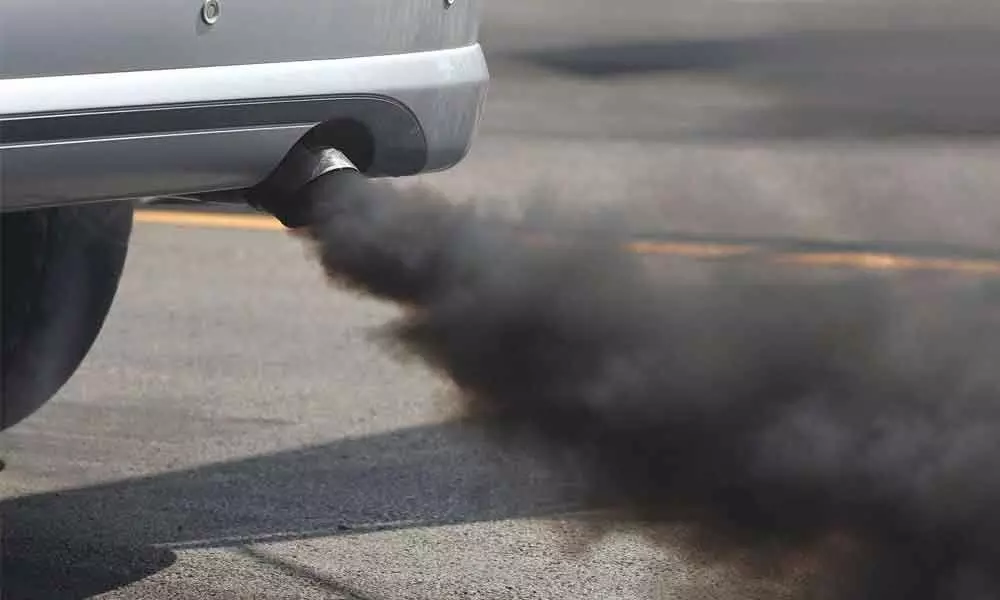Live
- Garena Free Fire MAX Redeem Codes for December 2024: Unlock Skins, Weapons, and More
- Dr. Ponguleti Sudhakar Reddy Welcomes Union Minister Piyush Goyal in Bengaluru
- Why Christmas is Celebrated on December 25: The Link to Roman Festivals
- Tributes paid to G Venkataswamy (Kaka)
- Amit Shah should quit; demand MP, MLA
- Hike in support price brings cheer to coconut farmers
- Apple's Face ID Smart Doorbell Could Unlock Doors by Late 2025
- Amit Shah must tender apology
- Govt’s focus on rural and tribal health: Minister Damodar
- Ramanujan’s birth anniversary celebrated
Just In

Scientists have developed a new technology that could cut carbon dioxide (CO2) emissions from trucks and buses by almost 90 per cent by capturing CO2 within the exhaust system, converting it into a liquid and storing it on the vehicle.
Geneva : Scientists have developed a new technology that could cut carbon dioxide (CO2) emissions from trucks and buses by almost 90 per cent by capturing CO2 within the exhaust system, converting it into a liquid and storing it on the vehicle.
The liquid CO2 would then be delivered to a service station where it will be turned back into fuel using renewable energy, according to the researchers from the Swiss Federal Institute of Technology Lausanne (EPFL).
They propose to capture CO2 and convert it from a gas to a liquid in a process that recovers most of energy available onboard, such as heat from the engine.
In the study, published in the journal Frontiers in Energy Research, the scientists used the example of a delivery truck. First, the vehicle's flue gases in the exhaust pipe are cooled down and the water is separated from the gases.
CO2 is isolated from the other gases such as nitrogen and oxygen with a temperature swing adsorption system, using metal-organic frameworks (MOFs) adsorbent, which are specially designed to absorb CO2.
Once the material is saturated with CO2, it is heated so that pure CO2 can be extracted from it, the researchers said.
High speed turbocompressors developed by Jurg Schiffmann's laboratory at EPFL use heat from the vehicle's engine to compress the extracted CO2 and turn it into a liquid.
That liquid is stored in a tank and can then be converted back into conventional fuel at the service stations using renewable electricity, the researchers said.
"The truck simply deposits the liquid when filling up with fuel," said Francois Marechal from EPFL. The whole process takes place within a capsule placed above the driver's cabin.
"The weight of the capsule and the tank is only 7 per cent of the vehicle's payload. The process itself uses little energy, because all of its stages have been optimised," said Marechal.
The researchers' calculations show that a truck using one kilogramme (kg) of conventional fuel could produce 3kg of liquid CO2, and that the conversion does not involve any energy penalty.
Only 10 per cent of the CO2 emissions cannot be recycled, and the researchers propose to offset that using biomass, they said.

© 2024 Hyderabad Media House Limited/The Hans India. All rights reserved. Powered by hocalwire.com







